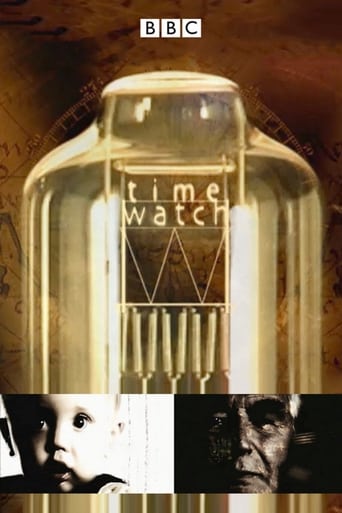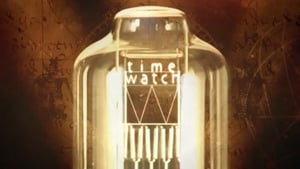
Watch Timewatch (1982) Online!
Timewatch is a long-running British television series showing documentaries on historical subjects, spanning all human history. It was first broadcast on 29 September 1982 and is produced by the BBC, the Timewatch brandname is used as a banner title in the UK, but many of the individual documentaries can be found on US cable channels without the branding.
-

Episode 1 - Light in the Dark
Release Date: 1989-01-11During the Nazi occupation of eastern Poland, a small group of Jews in the city of Lvov tried to save themselves from the death camps by hiding in the sewers beneath the city for more than 14 months. Timewatch reunited four remaining survivors in 1988 to record their accounts. The oldest, Mundek Margulies, journeyed back to Lvov (now part of the Soviet Union) and with co-operation from local authorities, went down into the sewers and through the maze of tunnels to help describe this extraordinary episode of human courage and endurance from the Jewish Holocaust.
-

Episode 2 - An Age of Empire
Release Date: 1989-02-08What effect did Charlie Chaplin have on the sale of tea? What first caused the sudden and surprising popularity of tennis and golf? And to what extent was the middle class of England responsible for changing an era of optimism and peace into the nightmare of the First World War? Eric Hobsbawm, one of Britain's leading historians, offers some insight into the 19th century and describes a world that was about to disappear for ever.
-

Episode 3 - Sacrifice at Pearl Harbor
Release Date: 1989-04-05For nearly 50 years the world has been led to believe President Roosevelt's statement that the attack was a total surprise and completely unsuspected by the neutral Americans. But witnesses from all over the world are now coming forward to tell a different story - that Washington was repeatedly warned about the coming attack. Two men who certainly weren't told that they were the likely target for a Japanese air strike were the commanders responsible for the safety of the fleet at Pearl Harbor, 2,000 miles out into the Pacific. Here the whole story is told for the first time - beginning with the breaking of the vital Japanese Naval Code by the British more than two years before.
-

Episode 4 - Playing with History
Release Date: 1989-05-03Two stories reflect the contribution made to history by non-professionals. BRITISH AND GUARANTEED: A look at those who re-create their childhood and the golden age of British engineering by collecting Frank Hornby's celebrated model trains. A BATCHELOR'S DELIGHT: Anne Batchelor has spent four years tracing her family line back to 1527. Among her ancestors is the Elizabethan lutenist, Daniel Bachiler.
-

Episode 5 - Witnesses
Release Date: 1989-05-31Two eyewitness accounts of the past - 500 years apart. The 15th-century letters of Margaret Paston push aside people's misconceptions about medieval women as passive objects. Harriet Walter brings to life a woman of immense strength, resourcefulness, and courage. The second film provides startling testimony to a horrifying episode of post-war murder of Polish Jews, filmed secretly by a crew from the Polish trade union Solidarity. Few films from eastern Europe have raised such disturbing questions.
-

Episode 6 - The Night of the Long Knives
Release Date: 1989-07-27In July 1962, Harold Macmillan sacked a third of his Cabinet, including Chancellor of the Exchequer and some of his oldest political friends. Did the normally unflappable Macmillan panic? Was there, as Macmillan claimed, a plot to overthrow him and, if so, who was behind it? Rare archive film and interviews with Macmillan's closest confidants and victims of his purge offer new evidence for this unprecedented act of political butchery.
-

Episode 7 - Summer of the Bomb
Release Date: 1989-08-09Did the atomic bombs that fell on Hiroshima and Nagasaki really shorten the war and save Allied lives? Based on American archive records, this dramatic account of the decision to use the atomic bomb reveals the reality of power politics - and pinpoints the origins of the Cold War.
-

Episode 8 - The Land of Lost Content
Release Date: 1989-09-06England's land was green but never pleasant. So why do villages and fields conjure up a happy, wholesome past? This film unravels the ironic tale of poverty in countryside and town which led to the invention of a rural fantasy in the years before the First World War. Glimpsing for the first time the new volume of Edith Holden's Country Diary, Timewatch asks why it was that these sweet Edwardian dreams finally came to hide the sour realities altogether.
-

Episode 9 - Trotsky
Release Date: 1989-10-04Leon Trotsky was one of the architects of the Russian Revolution and creator of the Red Army. Brilliant and eloquent, and expected to succeed Lenin, he was forced into exile, airbrushed out of Soviet history and murdered in 1940 on the direct orders of Joseph Stalin. Today, as Stalin's terrible heritage is being slowly dismantled, this film, using archive footage and personal memoirs, looks at the life and ideas of the revolutionary who was the dictator's first and greatest enemy. (edited from the 1987 French miniseries 'Trotsky')
-

Episode 10 - Fascist Legacy: 1: A Promise Fulfilled
Release Date: 1989-11-01During the Second World War, Italian forces in Yugoslavia murdered hundreds of thousands of civilians. Historians have now exposed the startling political reasons why there was never an Italian equivalent of the Nuremberg Trials. Michael Bryant narrates the story of the implementation of Mussolini's policy of Italianisation in the Balkans. Part 1 of 2.
-

Episode 11 - Fascist Legacy: 2: A Pledge Betrayed
Release Date: 1989-11-08At the end of the Second World War, conclusive evidence of war crimes was presented against more than 1,200 high-ranking Italian Fascists. Yet despite constant protests from the governments of Yugoslavia, Greece and Ethiopia, not one Italian war criminal was ever extradited to stand trial for crimes committed during the Italian occupation of their countries. Michael Bryant tells the story of how, for political and military reasons, the British and American governments chose to block the extradition of any Italian war criminals, many of whom by then held key positions in the Italian government. Part 2 of 2.
